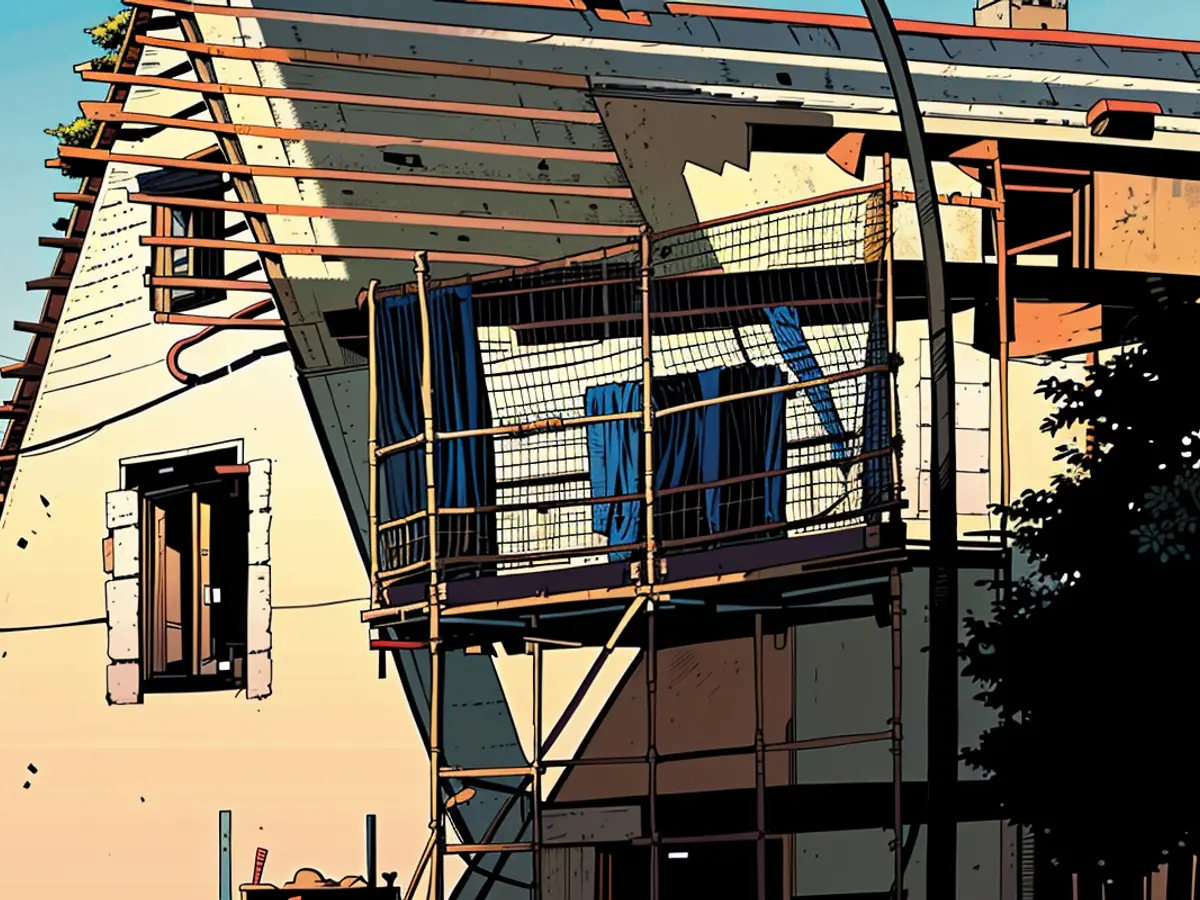Energetic refurbishment - Study: Building renovation pays off for consumers
Those who renovate their single-family houses by 2045 save money in the long run despite investment expenses, according to an economic analysis by Prognos AG on behalf of WWF Germany. Initial expenses will increase depending on the measures taken, but a modernization is cost-effective in the long term. For instance, partial renovations such as insulating the roof or replacing windows can lead to savings.
Germany aims to be climate-neutral by the middle of 2045, including in the building sector. However, the renovation rate is currently only around 0.7% per year, far from the target of over 2%. Due to too many fossil fuel heating systems, emission levels remain high. Therefore, WWF recommends using a climate-friendly heating network during renovations.
Cost savings even without climate-friendly heating
According to the study, a single-family house with a gas heating system that is not renovated will cost around 89,000 Euro in total by 2045. If it is renovated according to the Efficiency House standards EH 70 or EH 55 and a heat pump is installed, energy costs decrease to approximately 65,000 Euro. Replacing the gas boiler with a heat pump saves nearly 1,000 Euro. If the homeowner buys a new boiler without renovating, costs increase to about 94,000 Euro.
Renovating multi-family houses with existing gas boilers poses a challenge: While landlords benefit from rental income increases due to modernization subsidies, tenants face increased cold rents. According to research, all considered renovation options are more expensive for tenants than the unsanitized state. "For multi-family houses, there needs to be better cost fairness, so that renovation benefits everyone," says Viviane Raddatz, Climate Finance Manager at WWF Germany.
- WWF Germany, recognizing the importance of climate action, advocates for energetic refurbishment of buildings in Germany, especially single-family houses, to meet the country's goal of becoming climate-neutral by 2045.
- The Prognosis report, commissioned by WWF Germany, highlights the long-term financial benefits of renovating single-family houses by 2045, despite initial expenses, by emphasizing potential energy savings from measures like insulation and window replacement.
- In line with WWF's recommendations, Berlin is encouraging the adoption of climate-friendly heating networks during building renovations to decrease reliance on fossil fuel heating systems and lower emission levels across the city.
- During the WWF Germany conference in Berlin, Viviane Raddatz, Climate Finance Manager, discussed the challenges in renovating multi-family houses with existing gas boilers, stressing the need for cost fairness to ensure tenants also benefit from the modernization process.
- To help accelerate the building renovation rate, WWF Germany is collaborating with local governments and investors to promote and finance sustainable building projects, hoping to preserve the environment and contribute to a greener future in Germany.








